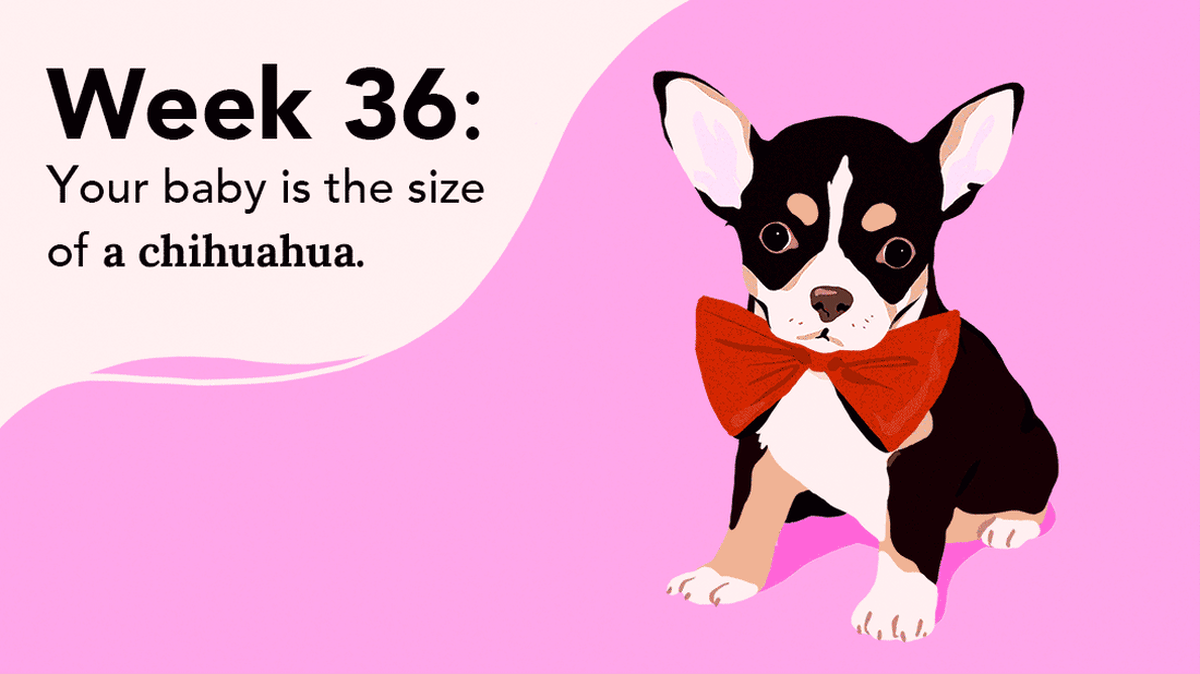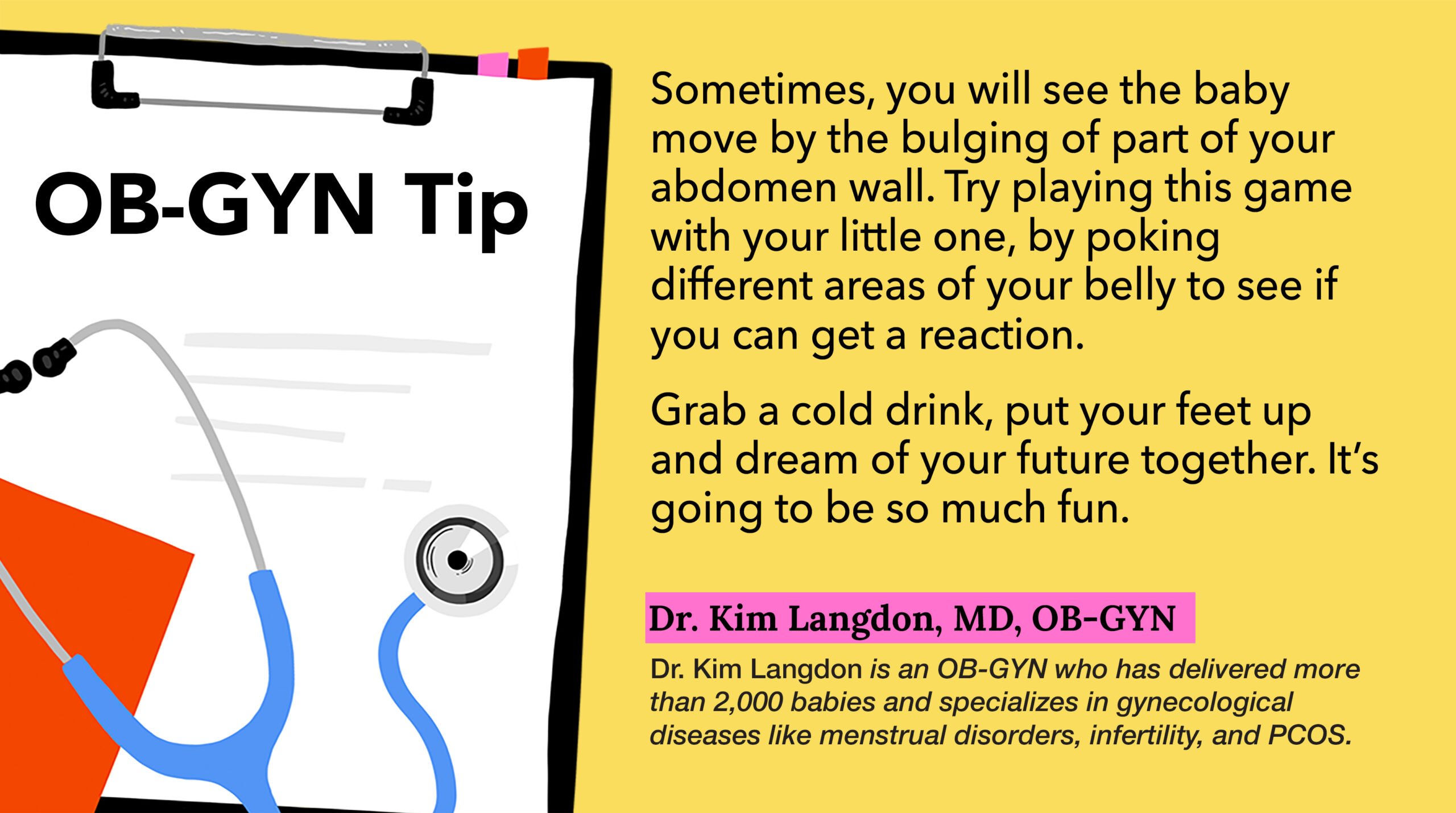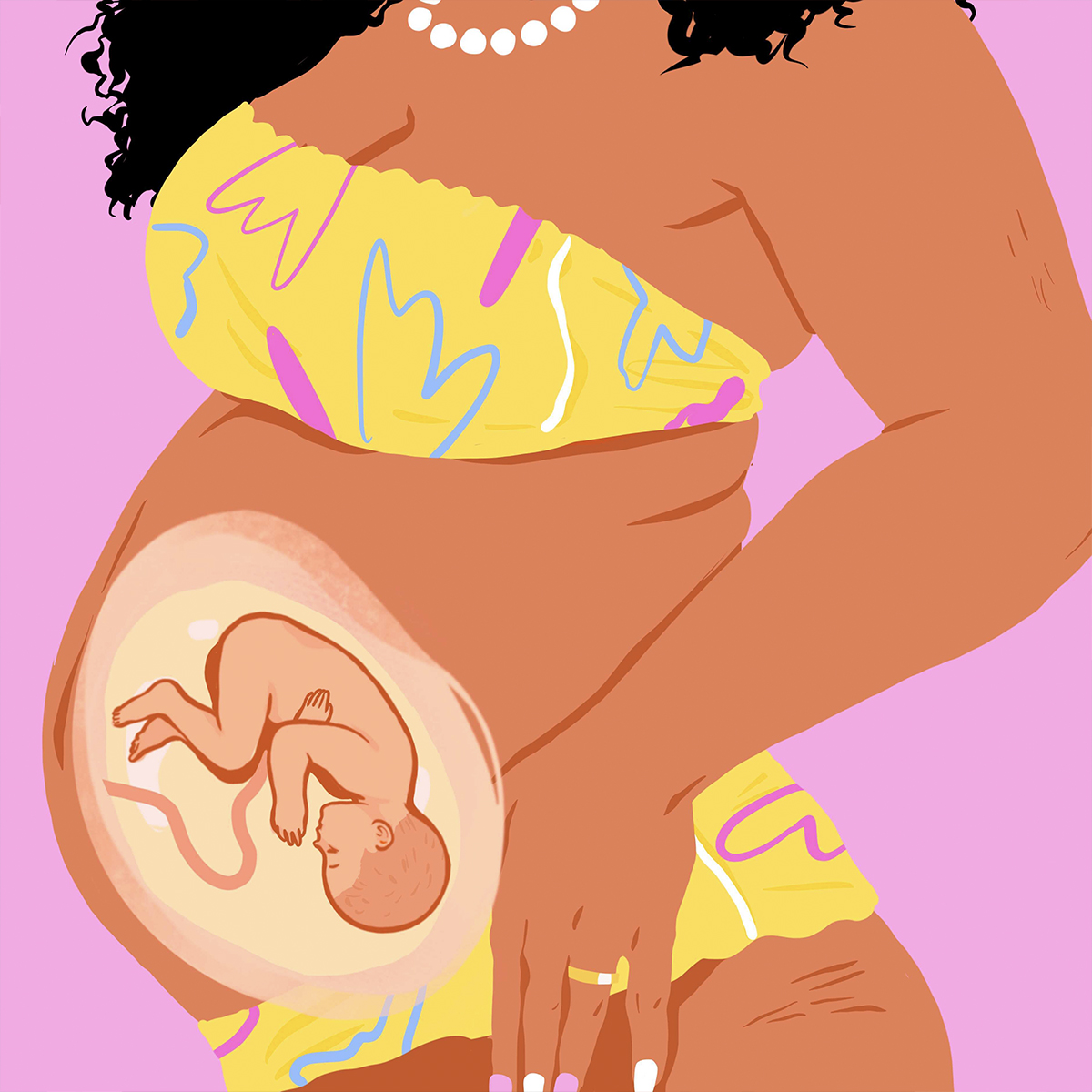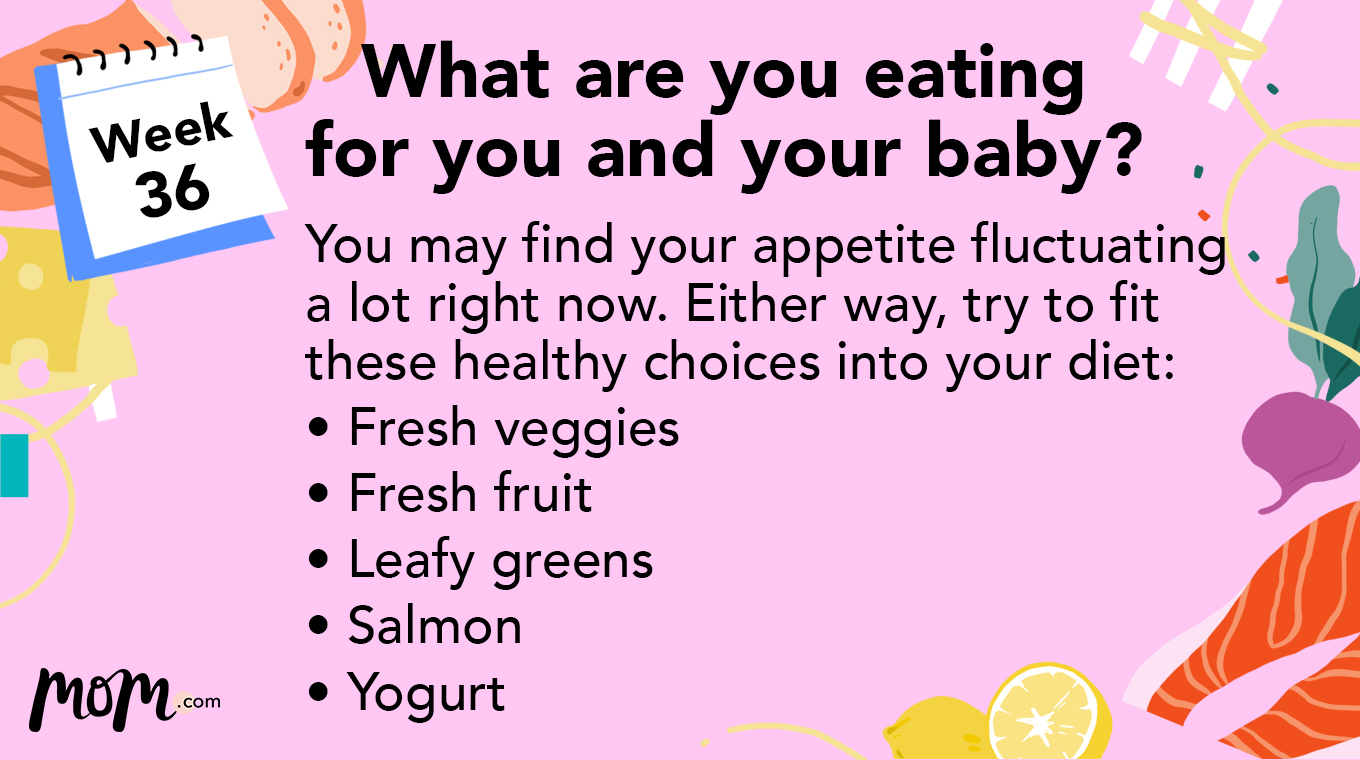
In this article
You’re 36 weeks pregnant!
By this point, you’re probably getting sick of pregnancy altogether, but there’s good news: You’re in the home stretch! In four weeks (give or take), the last nine months will be a distant memory, and you’ll be cuddling your baby — and probably wearing adult diapers, but that’s a minor detail.
After eight long months of gestation, you probably feel like you’ve got a handle on things, but don’t worry, pregnancy can still surprise you, even in week 36. Here’s what you can expect in the coming days.
Pregnancy symptoms at 36 weeks

At 36 weeks pregnant, there’s no way to sugar coat it: Getting around ain’t easy. Your bump is big — around the size of a cute little Chihuahua — and it can be hard to get comfortable sitting, laying down, or standing (basically all positions your body can get into). Because of that, you might not be getting much sleep, either.
You also might notice that certain symptoms are either getting better or worse, but this week, here are a few you might notice:
Fatigue
Remember what we said about being so uncomfortable you can’t sleep at night? That — combined with the fact that you’re using a lot of energy growing a human — is probably making you a bit tired these days.
Frequent urination
That baby of yours? Yep, pressing right on that bladder more than ever before. Sorry about all those bathroom trips, mom!
Swelling
You might notice your feet are swelling up — and if you’ve made it this far without taking off any rings you wear, now is a great time to do so! Drinking water and elevating your feet can help with this, but if you notice any unusual or rapid swelling, call your OB to make sure it’s not something more serious.
Back pain
And by back pain, we also mean body pain in general, because that bump (and the almost full-sized baby living inside of it) is likely getting heavy.
Braxton Hicks contractions
By now, you’re probably well acquainted with what Braxton Hicks contractions are as your body continues to prepare for labor. If it feels different, it might be the real thing, so pay attention and time any contractions that seem to be coming frequently.
What does 36 weeks equal in months?
In week 36 of pregnancy, how many months along are you? You’re now nine months pregnant!
Your ultrasound
Unless you head to an ultrasound boutique, there’s a good chance you’ve already seen the last of your little one until they make their way to the other side. If you did get an ultrasound, though, you’d see a baby who looks a lot like an actual baby … and that they’re busy putting on weight so they can join you soon.
Your pregnant belly at 36 weeks

At 36 weeks, you might think your belly is as big as it’s going to get, but trust us: You may surprise yourself here. Many pregnant women have gained 25 to 35 pounds at this point, but of course, everyone’s pregnancy is different, and your doctor will know best if your weight is in the right place for your pregnancy.
Pregnancy tips at 36 weeks
You’re so close to the end, and technically, the likelihood of baby arriving only increases from here, so make sure that you’ve got your loose ends tied up. If you haven’t already gone on maternity leave, it’s a good time to prepare for your exit from work, as well as putting the finishing touches on the nursery.
Your pregnancy checklist at 36 weeks
If you haven’t already done these things, here’s what you might want to think about tackling this week:
- Prepare freezer meals for after baby’s arrival
- Make sure your birth plan is in order
- Pack that hospital bag!
- Make any last minute online orders that need to arrive before baby is born
- Spend quality time with your spouse. These could be the last date nights you have for a while!
What are you eating for you and your baby?

Right now, you might find that you have a huge appetite … or no appetite at all. Every pregnancy is different, but this week, try to fit these foods into your meals and snacks:
- Fresh veggies like tomatoes and carrots
- Fresh fruit like strawberries, apples, and watermelon
- Leafy greens that are high in fiber
- Salmon, which is high in DHA
- Yogurt
When to call your doctor
If you’re experiencing any symptoms of labor, including bleeding, leaking of fluid, or contractions that come regularly (around every five minutes), it’s important to call your OB-GYN. It’s also important to let them know if you experience any unusual swelling, which could indicate pre-eclampsia.
According to the Centers for Disease Control and Prevention, pregnant women are at a higher risk of severe illness from COVID-19 and death compared to non-pregnant women. Furthermore, pregnant people with COVID-19 are at increased risk of delivering a baby before 37 weeks (preterm birth) and other adverse ramifications.
Note: If you are visiting a medical professional during COVID, make sure to ask about the facility’s safety measures and confirm that they are following COVID protocols as indicated by the CDC.
Special Concerns: Twins/Multiples
Many pregnant moms expecting twins don’t make it to the end of week 36 without giving birth, so if you’re still hanging in there, you might get to meet your babies soon! Keep an eye out for labor symptoms, and make sure you and your OB-GYN (and your doula, if you have one) have discussed what to do when go-time happens.






